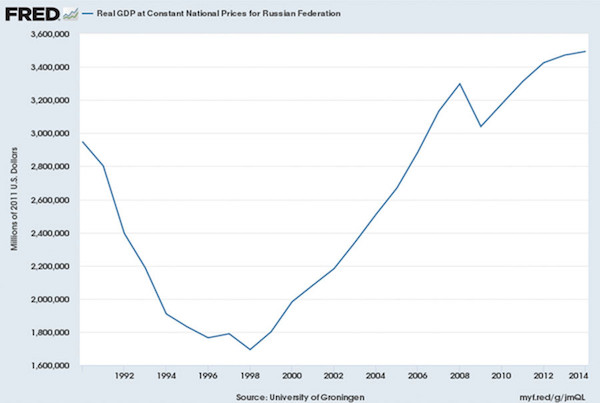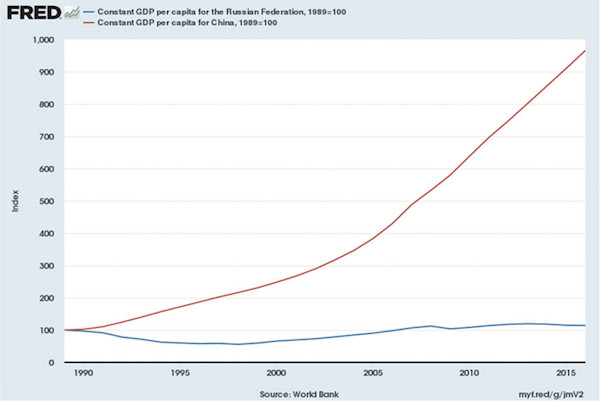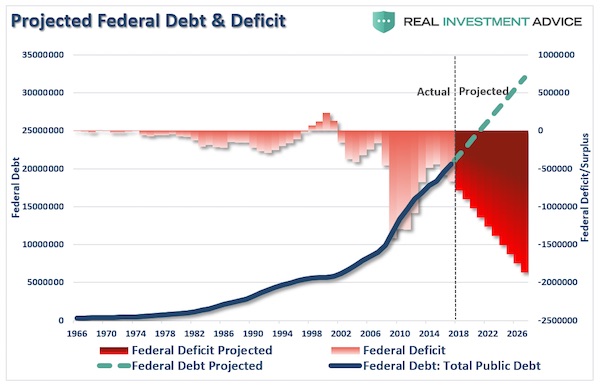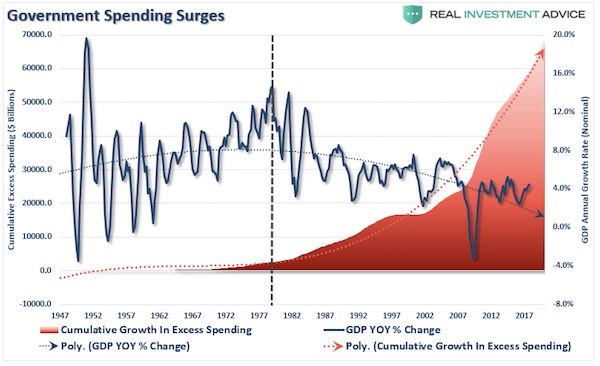
Robert Capa Anti-fascist militia women defending a street barricade, Barcelona 1936

How many people actually believe the Skripal and Douma stories they are being fed?
• US Media Love War More Than They Hate Trump (Khalek)
American media outlets can’t help themselves. They love war. They love war more than they hate Trump. They love war so much, they are cheering on the president they hate to militarily escalate in Syria. And if he doesn’t escalate in Syria, it proves he is controlled by the Kremlin, they tell us. If he wants to demonstrate that Russia isn’t calling the shots, he must bomb Syria. And he must bomb Syria to punish Assad for an alleged chemical attack that has yet to be properly investigated to determine whether it took place and who is responsible. The US media isn’t interested in evidence, they have been repeating that Assad was behind this alleged attack from the beginning and through repetition it has become a truth.
NBC recently published claims fed to them by anonymous US intelligence officials claiming to have proof that the attack did indeed take place and that Assad is responsible. It’s not as if US officials have ever lied about weapons of mass destruction in the past to justify war, so why should NBC be skeptical of this? Meanwhile, CNN—when it isn’t busy obsessing over Stormy Daniels—has hosted a parade of war hawks agitating for military escalation against Syria, against Iran, even against Russia. For example US Republican Senator Lindsey Graham, who has never seen a country he doesn’t want to bomb, was allowed to go on air and call Assad a legitimate military target, saying Trump should take him out to “send a strong message other bad actors like North Korea and Iran.”
He went largely unchallenged by the CNN host whose only qualm was where the US could bomb in Syria to properly punish the Assad government. “It’s tough to decide what option to hit. What is a good option? You’d be forced to take out the air force but it doesn’t sound like taking out the air force will stop if it’s chemical attacks coming out of a helicopter,” she said to Graham. The editorial board at the Washington Post, a newspaper that is owned by Amazon billionaire Jeff Bezos who has a $600 million contract with the CIA that is never disclosed by the paper on stories related to the intelligence agency despite the clear conflict of interest, agitated for Trump to go further than just bombing Syria once.
The Post wants to see a longer term plan for regime change and US military domination over Syria. “The reality Mr. Trump has not yet faced is that as long as the dictator he called “Animal Assad” remains in place, Syria’s wars will continue, breeding Islamist terrorists and propelling refugees toward Europe,” said the Post. But the reality is the opposite: it is the US’ war of regime change in Syria that has prolonged the war, bred Islamist terrorists, and propelled refugees toward Europe, and the Post is calling for continuing that regime change operation.

The story is they struck chemical weapons facilities. That means the OPCW has zero credibility from now on; they stated just a few years ago that Syria had none anymore.
• US Defence Secretary Mattis Says ‘This Was A One-Time Shot’ – For Now (Ind.)
The US military has revealed the three-nation stake on Syria targeting alleged chemicals assets is over for now – declaring “right now this is a one-time shot”. Defence Secretary James Mattis said the US, UK and France had acted together, having determined that Syrian leader Bashar al-Assad had used chemical weapons against civilians a week ago. He said it would depend on Mr Assad if there were further strikes. “Right now this is a one-time shot,” he told a briefing on Friday night at the Pentagon. The Chairman of the Joint Chiefs of Staff General Joseph Dunford, said the targets included a Syrian research facility, a chemical weapons storage facility and a command post. The first of these was located in Damascus, the first time that the US had struck close to the capital.
Asked whether the US and its allies was planning further attacks, Mr Mattis said: “That depends open Assad.” The Defence Secretary said he was “certain” the Syrian regime had used chemical weapons in an attack on civilians, something that Mr Assad and its Russian allies have denied. He said the US was still investigating what sort of chemical weapons had been used. “We are aware of one of the chemical agents” that was used, but further assessments were continuing. While it was reported that Russian forces were not warned in advance of the strike, he said that usual deescalation communications did go ahead, the process Moscow and Washington use to avoid unintentional attacks on each other’s forces, or accidental clashes or their aircraft.

“..an extra 2.5-3 million Russian adults died in middle age in the period 1992-2001 than would have been expected based on 1991 mortality..”
• Why Is ‘Bad Guy’ Putin So Popular At Home? (Steve Keen)
The destructive impact of the far-too-rapid transition was an increase in the mortality rate, which medical researchers concluded meant that “an extra 2.5-3 million Russian adults died in middle age in the period 1992-2001 than would have been expected based on 1991 mortality. ” In strict economic terms, the transition was an abject failure – that is, if you think it was intended to improve Russian living standards. GDP virtually halved between 1990 and 1998, living standards plummeted, crime proliferated, and Russian society almost collapsed. Even today, output is barely above pre-transition levels.n

The failure of the rapid transition policies forced on Russia by the US is even more apparent when Russia’s transition performance is compared with China’s, where the communists remained firmly in control, and where the transition was deliberately undertaken at a measured pace. Russia’s per capita GDP today is only slightly above its level at the end of the Soviet period. China’s per capita GDP is ten times what it was in 1990. However, viewed from the very bottom of this brutal process in 1998, Russia has made remarkable progress: from 1998 until now, GDP has more than doubled, in both total and per capita terms. For almost all of this time, Russia’s president or prime minister has been Vladimir Putin.

Prior to his election in 2000, Putin rose to prominence in part because of his successful repression of the Chechen revolt. This hardly endeared Putin to the Chechens. But it gave him the aura of a strongman at the time most Russians believed their country desperately needed one, to eliminate the low-level mafia who tormented the public directly, to subdue the Oligarchs who exploited them, and to stand up to the West when his predecessor Yeltsin had effectively been a puppet. Putin can’t be solely credited with starting the economic turnaround, but his strongman approach to running Russia was welcomed, and is still welcomed, by the majority of his countrymen.
Russia is far from perfect under Putin, and Putin is far from perfect himself. But its economy and its national pride have been restored under his rule, and the Russian public cannot be faulted for feeling substantial antipathy towards the West, and the US in particular. Given that Russia has legitimate grievances about how the West treated it after it decided to join the capitalist camp, and the disastrous outcomes of all previous Western attempts at regime change, I’d rather our so-called leaders aimed for rapprochement with Russia, and yes, with Putin, instead of heightened animosity.

So what is Congress going to do?
• Trump’s Actions in Syria Violate US Constitution (Kucinich)
President Trump acted without congressional authorization in ordering a military attack against Syria tonight. This is a clear violation of the United States Constitution, Article 1, Section 8 which makes it clear that only Congress has the power to declare war. The President’s Article II authority as “Commander in Chief” does not give him the authority to act independent of Congress on matters of war. This is not a mere technicality. The doctrine of separation of powers is the only thing which protects the US from becoming a dictatorship. The President is subject to the law. The gas attack on Douma must be dealt with in an international court of law. If the US does not stand for the rule of law, how can we demand other countries to do so?
The attack on Syria will embolden ISIS. Our military power should not be used to help, directly or indirectly, ISIS and those elements whose philosophy is inimical to the United States of America. The President has violated the Constitution, usurping the power of Congress. This is not about whether or not the President hates Syria’s leaders. It is about whether or not he loves the US Constitution, which he took an oath to defend. The President chose to order a military attack almost a week after the gas attack on Douma. He had plenty of time to seek congressional approval, but he chose not to do so, even though he himself specifically said “The President must get congressional approval before attacking Syria – big mistake if he does not.” (Twitter, August 30th, 2013).

“.. the Arab world under the control of those who live and work in the Arab world.”
From Syria, to Iraq, Iran to Libya, our understandings of the long-wars in the Middle-East as moral, humanitarian interventions designed to democratise and civilise are the result of a carefully crafted propaganda campaign waged by the US and its allies. Each of these uprisings were launched by US proxies, designed to destabilize the regions, justifying regime change that suit the economic interests of its investors, banks and corporations, captured comprehensively in a new book by Canadian author and analyst, Stephen Gowans, Washington’s Long War on Syria. You might be surprised to know that both the Libyan, Syrian and Iraqi government, led by Muammar Gaddafi, Hafez Al Assad, (succeeded by Bashaar Al Assaad) and Sadaam Hussein respectively, were socialist governments.
Or Ba’ath Arab Socialist governments, to be precise. Ba’ath Arab Socialism can be summed up in their constitutions supporting the values of: ‘freedom of the Arab world, freedom from foreign powers and freedom of socialism’. Its doctrine was supported in Libya, as it was in Iraq and Syria. Of course, particularly in Hussein’s case, we cannot claim that these governments were without their problems. Ethnic cleansing is not to be overlooked, but condemned on the strongest grounds. But of course these were not the reasons the US and its allies decided to get into it. “For the last quarter of a century, the US and its allies have waged highly destructive campaigns of economic warfare against Syria and Iraq, the economic equivalent of nuclear war,” writes Gowans,
“and have done so because they are opposed to Ba’ath Arab Socialist efforts to bring politics and the economics of the Arab world under the control of those who live and work in the Arab world.” In the case of Iraq, it had combined its oil wealth with public ownership of the economy, leading to what is known as ‘The Golden Age’, where, according to a State Department Official: “Schools, universities, hospitals, factories, museums and theatres proliferated employment so universal, a labour shortage developed.” When the Ba’ath Arab Socialists were driven from power in Iraq, the US installed military dictator, Paul El Briener who set about a ‘de-Ba’athification’ of the government, expelling every member of the Ba’ath Arab Socialist party and imposed a constitution forbidding any secular Arab leader from ever holding office in Iraq again.

It ain’t over.
• The Deep State Takes A Hostage (Stockman)
The Donald seems to be taking a Deep Breath on his Syria bombfest, but the Deep State has him by the orange hairs. So we doubt the delay will last much longer. That’s because our Art of the Deal genius is getting bamboozled yet again. They are telling him that wiping out up to a dozen Syrian airfields, military installations and a dog-eared factory or two that can be identified as chemical weapons sites will amount to some pretty serious Shock & Awe where it counts: That is, the mere witnessing of it will cause the Fat Boy of Pyongyang to brown his ample trousers, thereby getting his “mind right” for the upcoming summit. That’s exactly the kind of macho-bargainer stuff that the Donald thrives on, and is further proof that the Deep State has figured out exactly how to press his buttons.
To be sure, Trump is no innocent victim. He voluntarily made himself hostage to the War Party by surrounding himself with failed generals and the most rabid war-mongers to be found in the Imperial City—-John Bolton, Mike Pompeo and Gina Haspel. Indeed, you have to wonder. How could anyone with even a half-baked notion of America First think that a hard core interventionist like John Bolton should be brought up right close and personal to the POTUS ear lobes, Walrus mustache and all? But whatever the Donald was thinking when he made such horrendous choices for his top national security posts, these denizens of the War Party have wasted no time shoving their own agenda right down his throat.
And at the top of that agenda is systematic, relentless escalation of provocations against Russia and Iran. That’s because confrontation with these demonized states is the best way to keep Imperial Washington (and therefore the entire country) on a war-footing and the national security gravy train overflowing with fiscal largesse. As we indicated in Part 1, the impending attack on Syria is actually a shot across the bow aimed at Tehran and Moscow. The cover story is simply a humanitarian sounding ruse. Ostensibly, Bashar Assad is being administered a good hard spanking via a barrage of cruise missile birch switches.
That begs the question, of course, of how homeland security is actually enhanced by selectively spanking some malefactors and not others. In this case, even the surely bogus claim that 40 civilians were gassed in Douma hardly compares to the 10,000 civilians that have been slaughtered by American bombs delivered by the Saudi air force in Yemen; or the thousands of anti-government prisoners that have been summarily executed by General al-Sisi in Egypt under this stewardship of Washington’s $1.2 billion annual stipend; or the thousands of civilians that Israel has killed during its periodic “lawn-mowing” exercises on the Gaza Strip.

Huge challenge to Facebook and the CIA. How come only the Irish Times reports on it? The EU top courts is about to ban transfer on personal data from Europe to the US.
• Irish High Court Sets Out 11 Questions For ECJ on EU-US Data Transfers (IT)
Legal uncertainty surrounds the capacity of companies such as Facebook to transfer European users’ data to the US after a High Court judge asked the most senior EU court to consider 11 questions on the issue. The referral stems from a case taken by Austrian privacy activist Max Schrems. The questions raise significant issues of EU law with huge implications, including whether the High Court has correctly found there is “mass indiscriminate processing” of data by US government agencies under the PRISM and Upstream programmes authorised there. The questions also ask whether EU law applies to the processing of personal data for national security purposes regardless of whether that data processing takes place in the EU or US or other third country.
Other questions concern whether the Privacy Shield Decision and other measures in the US afford adequate protection for EU citizens whose data is transferred there. The ECJ is also asked to decide the extent of a data protection authority’s (DAA) power to suspend data flows if it considers a third country is subject to surveillance laws which conflict with EU law. After Ms Justice Caroline Costello set out the questions on Thursday in a formal request to the ECJ for a preliminary ruling, Paul Gallagher SC, for Facebook, asked for time to consider that in the context of possibly seeking an appeal against the judge’s decision to make a reference to the CJEU in the first place.
Michael Collins SC, for the Data Protection Commissioner (DPC), queried whether there was any entitlement to appeal a High Court decision to direct a reference but did not object to Facebook being given a short time to consider its approach. The judge, noting she had given judgment last October sanctioning a reference, said she was anxious to make the referral but would allow Facebook time to April 30th. Among the questions for reference include whether, when deciding if data privacy rights of an EU citizen are breached, the issue must be examined against the EU Charter and EU law or the national law of one or more EU states, or an amalgam of the laws of all member states. The High Court had found the appropriate comparator was EU law despite Facebook disputing that.

The challenege is in Europe, not the US.
• Mark Zuckerberg’s Testimony Lurched From Easy Ride To Headache (G.)
As Mark Zuckerberg left Congress on Tuesday after testifying to the Senate, he may have felt relieved. The four-hour Q&A session had been largely dominated by mundane questions of fact about how Facebook works, requests for apologies and updates he had already given and was happy to repeat, and shameless begs for the social network’s cash pile to be used to expand broadband access in senators’ home states. Less than 24 hours later, however, a very different pattern of questioning in front of 54 members of the House of Representatives suggested a much more worrying outcome for Facebook – that this could be the week its crisis moves from being about mistakes in the past to inherent problems in the present.
Perhaps, the representatives implied, Facebook doesn’t just have a problem. What if it is the problem? Questions were still asked about Cambridge Analytica, the 9m other apps the company has to investigate for historical data sharing, and the revelation that more than a billion users had their data scraped by third parties abusing a phone or email lookup feature. But just as many were asked about problems that revolved less around mistakes and more around fundamental facets of Facebook’s business. Unsurprisingly, Zuckerberg appeared less inclined to answer those. “Will you make the commitment to change … all the user default settings to minimise, to the greatest extent possible, the collection and use of users’ data,” asked Frank Pallone, the panel’s top Democrat.
Zuckerberg, declining to give a yes or no, eventually agreed to follow up with an answer after the hearing. “Are you willing to change your business model in the interest of protecting individual privacy,” asked the Democratic congresswoman Anna Eshoo. “I’m not sure what that means,” was Zuckerberg’s reply. Europe’s general data protection regulation, Democrat Gene Green noted, gives EU citizens the right to opt out of the processing of their personal data for marketing purposes. “Will the same right … be available to Facebook users in the United States?” Zuckerberg: “Let me follow up with you on that.”

“..an additional dollar of deficit spending will reduce private GDP by $1.01, resulting in a one-cent decline in real GDP..”
• Making America More Indebted (Roberts)
In December of last year, as Congress voted to pass the “Tax Cut & Jobs Act,” I wrote that without “real and substantive cuts to spending,” the debt and deficits will begin to balloon. At that time, I mapped out the trajectory of the deficit based on the cuts to revenue from lower tax rates and sustained levels of government spending.

Since that writing, the government has now lifted the “debt ceiling” for two years and passed a $1.3 Trillion “omnibus spending bill” to operate the government through the end of September, 2018. Of course, since the government has foregone the required Constitutional process of operating on a budget for the last decade, “continuing resolutions,” or “C.R.s,” will remain the standard operating procedure of managing the country’s finances. This means that spending will continue to grow unchecked into the foreseeable future as C.R.’s increase the previously budgeted spending levels automatically by 8% annually. (Rule of 72 says spending doubles every 9-years) The chart below tracks the cumulative increase in “excess” Government spending above revenue collections. Notice the point at which nominal GDP growth stopped rising.

Trillion dollar deficits, of course, are nothing to be excited about as rising debts, and surging deficits, as shown, impede economic growth longer-term as money is diverted from productive investments to debt-service. While many suggest that “all government spending is good spending,” the reality is that “recycled tax dollars” have a very low, if not negative, “multiplier effect” in the economy. As Dr. Lacy Hunt states: “The government expenditure multiplier is negative. Based on academic research, the best evidence suggests the multiplier is -0.01, which means that an additional dollar of deficit spending will reduce private GDP by $1.01, resulting in a one-cent decline in real GDP. The deficit spending provides a transitory boost to economic activity, but the initial effect is more than reversed in time. Within no more than three years the economy is worse off on a net basis, with the lagged effects outweighing the initial positive benefit.“

Oh boy, are we doing great.
• JPMorgan Profits Soar 35% Thanks To Donald Trump’s Tax Cuts (Ind.)
JPMorgan’s profits jumped 35 percent in the last quarter, compared to a year ago, partly thanks to a huge tax cut. Congress slashed the corporate tax rate from 35 per cent to 21 per cent in December as part of a major overhaul pushed for by President Donald Trump that also cut taxes for wealthy individuals. Higher interest rates also helped to boost profits, JPMorgan said. The bank earned $8.7bn (£6.1bn) in the first quarter, or $2.37 a share, up from $6.45bn, in the same period a year earlier. Analysts had predicted JPMorgan would earn $2.28 a share.
Pre-tax income rose by $2.6bn to $28.52bn in the quarter, the company paid $240 million less in taxes compared to a year earlier. “2018 is off to a good start with our businesses performing well across the board, driving strong top-line growth and building on the momentum from last year,“ chief executive Jamie Dimon said. “The global economy continues to do well, and we remain optimistic about the positive impact of tax reform in the US as business sentiment remains upbeat, and consumers benefit from job and wage growth.”








